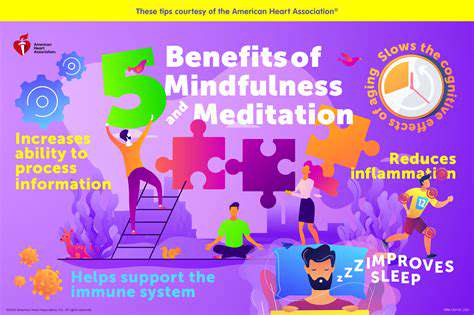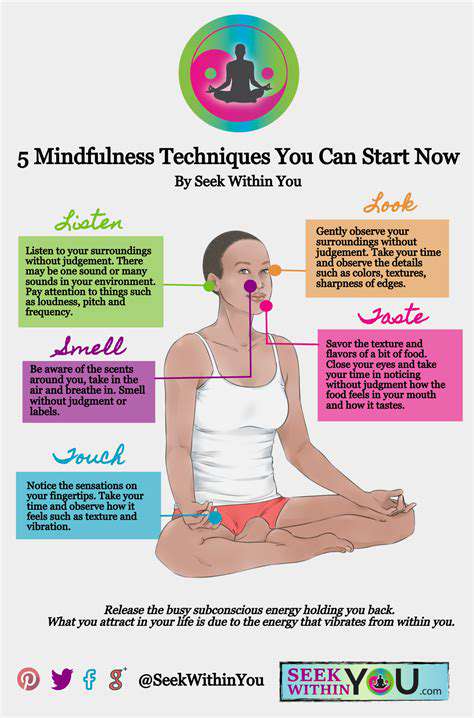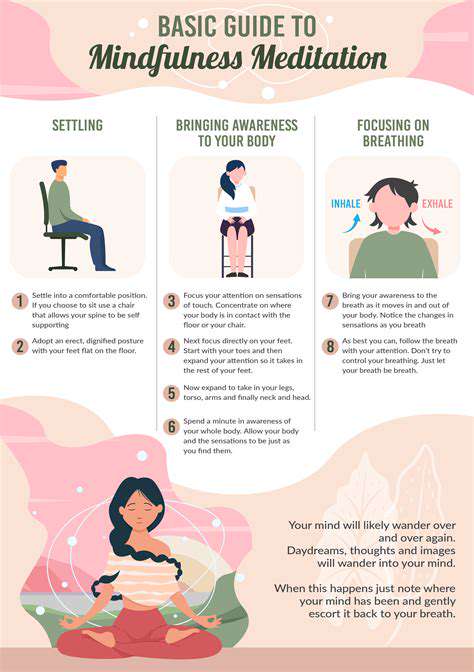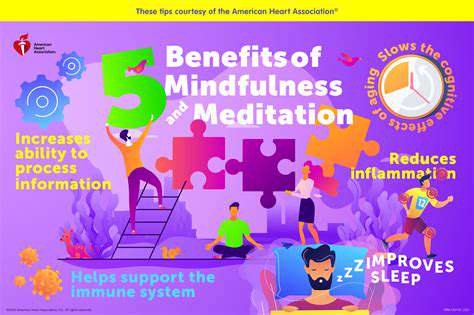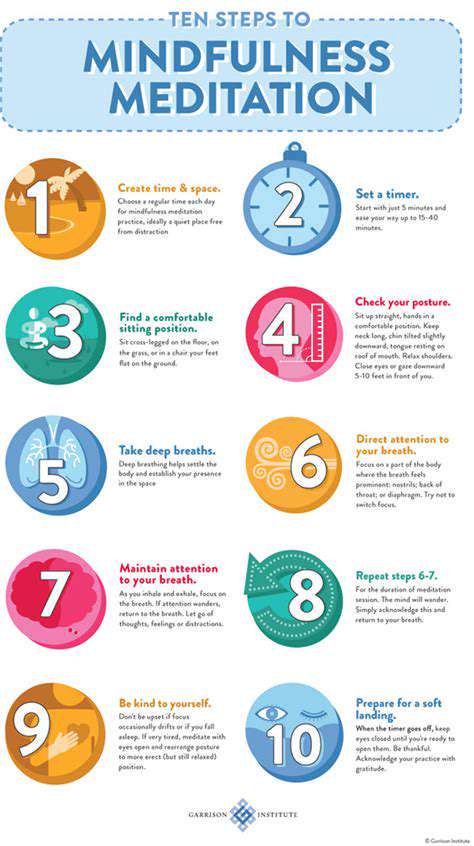10 Essential Strategies for Building Resilience in Daily Life
Introduction
Understanding Resilience
Resilience is the ability to bounce back from adversity, adapt to change, and keep going in the face of challenges. It is not an inherent trait but rather a skill that can be developed over time. Understanding what resilience truly means is essential for anyone looking to build it into their daily life.
At its core, resilience involves emotional strength and the ability to manage stress effectively. This means recognizing your feelings, understanding their implications, and finding constructive outlets to deal with them. Emphasizing a proactive approach helps individuals prepare for potential setbacks.
Ultimately, developing resilience leads to greater mental well-being and allows individuals to navigate life’s complexities. By fostering this skill, not only can we handle stress more effectively, but we also cultivate a positive outlook on life, making us more adaptable to change.
Strategies to Enhance Resilience
One effective strategy to enhance resilience is cultivating a strong support network. Friends, family, and colleagues can provide crucial emotional and practical support during tough times. Building these relationships takes time and effort but pays dividends when facing challenges.
Another important strategy is practicing mindfulness and self-compassion. Mindfulness helps you stay present, reducing anxiety about the future, while self-compassion encourages positive self-talk during moments of failure or difficulty. Both practices aid in fostering a balanced emotional environment.
Setting realistic goals can also increase resilience. By establishing achievable objectives, you create a sense of purpose and direction. This leads to incremental success, allowing you to appreciate your progress and build confidence, which is essential for facing future obstacles.
Maintaining a Resilient Mindset
Maintaining a resilient mindset requires continuous self-reflection and adaptation. Regularly assessing your thoughts and behaviors can help identify areas for improvement, enabling you to make necessary adjustments in life. This proactive approach is vital for long-term resilience.
Additionally, developing a growth mindset can greatly influence your resilience levels. Embracing challenges as opportunities for learning rather than threats encourages a more adaptable and open attitude toward life’s uncertainties. Accepting that setbacks are part of growth helps in maintaining motivation during difficult times.
Lastly, taking care of your physical health is essential for sustaining mental resilience. A balanced diet, regular exercise, and adequate sleep contribute significantly to overall well-being. When the body is strong and healthy, the mind is better equipped to handle stress and adversity, fostering a resilient approach to daily life.
1. Cultivate a Growth Mindset
Understanding the Growth Mindset
A growth mindset is the belief that abilities and intelligence can be developed with effort, learning, and perseverance. This contrasts with a fixed mindset, where individuals believe their qualities are static and unchangeable. Embracing a growth mindset allows you to see challenges as opportunities for growth rather than threats to your abilities.
Understanding the growth mindset involves recognizing the power of "yet." For instance, instead of saying, "I can't do this," you can say, "I can’t do this yet." This small shift in language can significantly alter how you approach problems and difficulties in life.
Research shows that individuals with a growth mindset are more likely to embrace challenges, persist through obstacles, and see effort as a path to mastery. They tend to achieve more than those with a fixed mindset because they focus on learning and self-improvement rather than external validation.
To cultivate a growth mindset, it’s essential to practice self-reflection. Take time to think about your responses to setbacks and how you can frame these experiences as opportunities to learn and grow. This practice can significantly impact your overall resilience and approach to life.
Incorporate feedback and constructive criticism into your learning process. Appreciate the input from others as a tool for growth, rather than viewing it as a personal attack or an indicator of your worth. By doing so, you can foster a more resilient mindset that thrives in the face of adversity.
Practical Steps to Develop a Growth Mindset
Beginning to develop a growth mindset can be as simple as changing your daily language. Start by modifying how you speak to yourself and others about challenges. Phrases like "I'm struggling with this" can be shifted to "I'm learning about this," which reinforces the idea of continuous growth.
Set specific, achievable goals that allow you to progress through learning stages. Accomplishing these smaller goals will help build your confidence and reinforce the notion that effort leads to improvement. Celebrate these small victories to maintain motivation and a positive outlook.
Surround yourself with people who embody a growth mindset. Engage in discussions, share experiences, and learn from each other's failures and successes. This environment fosters collective resilience and encourages each individual to pursue growth.
Consider journaling as a tool for personal growth. Write down your challenges, actions, and the outcomes. Reflecting on this process can provide insights into how your mindset influences your responses and help you identify patterns that need adjusting.
Lastly, remember that developing a growth mindset is an ongoing process. Be patient with yourself and recognize that setbacks are part of the journey. Adopting this perspective will not only improve your resilience but also enrich your life experiences.
2. Build Strong Relationships
Understanding the Importance of Strong Relationships
Strong relationships are foundational to emotional and mental well-being. They provide support during challenging times and enhance our overall quality of life. Research shows that those with strong social connections tend to be happier and more resilient to stress and adversity.
Building close connections with friends, family, and community members can create a support network that helps us navigate life's ups and downs. These relationships provide a sense of belonging and reinforce our self-esteem, which is crucial for bouncing back from setbacks.
Moreover, having strong relationships contributes to our physical health. Studies indicate that those with solid social ties have lower rates of illness and longer life spans. Emotional support can improve our immune systems and reduce the risk of chronic diseases.
In essence, nurturing relationships can be seen as an investment in our resilience. They act as a buffer against stress and adversity, allowing us to face challenges with greater fortitude.
Tips for Building and Maintaining Strong Relationships
To cultivate strong relationships, it's essential to take proactive steps in connecting with others. Start by actively listening to those around you and showing genuine interest in their lives. Engaging in meaningful conversations can strengthen bonds and foster deeper connections.
Make an effort to spend quality time with loved ones. Whether it’s regular family dinners, catch-up sessions with friends, or community events, shared experiences create lasting memories that enhance relationships.
Expressing appreciation and gratitude towards others can significantly strengthen relationships. A simple "thank you" or a compliment can go a long way in making someone feel valued and respected.
Finally, it's crucial to be open and honest in your relationships. Trust is the cornerstone of any strong bond, and practicing transparency can prevent misunderstandings and conflicts in the long run.
Overcoming Challenges in Relationships
While building strong relationships is important, challenges are inevitable. Disagreements and misunderstandings can arise, testing the strength of our connections. The key is to approach these situations with empathy and an open mind, striving for resolution rather than conflict.
Communication is paramount in overcoming relationship challenges. Practice active listening and focus on understanding the other person's perspective. This can help diffuse tensions and lead to constructive conversations.
It’s equally important to recognize that not every relationship will be perfect. Some relationships may require more effort than others, and acknowledging this can help manage expectations. Be patient and give the relationship time to grow and evolve.
If conflicts persist or become overwhelming, consider seeking professional help. Therapy or counseling can provide tools and strategies to navigate difficult situations and strengthen the bond between individuals.
3. Practice Self-Care
Understanding Self-Care and Its Importance
Self-care is the practice of taking an active role in protecting one's own well-being and happiness, particularly during periods of stress. It encompasses various activities that promote physical, emotional, and spiritual health.
Incorporating self-care into your daily routine can significantly improve your overall resilience. It teaches you to recognize your boundaries and prioritize your needs, which is essential for maintaining mental and emotional balance.
Practicing self-care also aids in building healthier relationships with others, as it equips you with a stronger sense of self and emotional stability. When you take care of yourself, you are better able to support those around you.
Moreover, self-care is not just about pampering oneself; it is a necessary practice that can prevent burnout and emotional exhaustion. Engaging in activities that bring joy and relaxation helps recharge your batteries.
Ultimately, establishing a self-care regimen fosters resilience by equipping you with the tools to face daily challenges with a positive attitude and a clear mind.
Implementing Effective Self-Care Strategies
To effectively practice self-care, start by identifying activities that rejuvenate you, such as reading, exercising, or enjoying time in nature. Make it a priority to engage in these activities regularly, even if it’s just for a short duration each day.
Consider setting boundaries that protect your time and emotional health. This could mean saying no to commitments that drain you or designating specific times for work and relaxation.
Incorporating mindfulness techniques, such as meditation or deep breathing exercises, can enhance your self-care routine. These practices help bring awareness to your thoughts and feelings, allowing you to address stressors more constructively.
Don't forget the importance of nutrition and sleep in your self-care plan. Nourishing your body with healthy foods and ensuring you get adequate rest are foundational aspects of maintaining resilience.
Finally, seek support when necessary. Sharing your self-care journey with friends or family can provide accountability and encouragement. Remember that building resilience is a continuous journey, and reaching out for help is a powerful form of self-care.
4. Develop Problem-Solving Skills
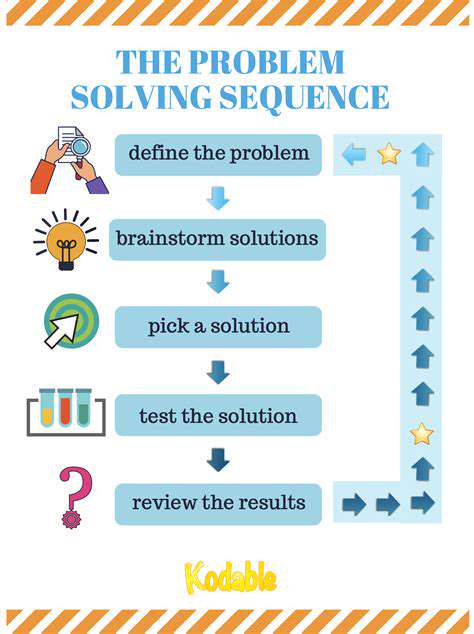
Understanding Problem-Solving Techniques
Problem-solving is a vital skill for cultivating resilience in everyday life. By honing this skill, individuals can approach challenges with confidence and creativity. It often involves breaking down a situation to analyze what the problem is and what steps are necessary to resolve it.
A common method used in problem-solving is the S.O.S. approach: Specify the problem, Explore options, and Set a plan. This structured method encourages critical thinking and can lead to more effective decision-making.
Practicing Mindfulness to Enhance Problem-Solving
Practicing mindfulness can greatly improve problem-solving abilities. When one is present and focused, it is easier to think clearly and assess the situation without the cloud of emotions. Mindfulness encourages a calm and balanced mindset, which is crucial during stressful times.
Building a Support Network for Problem-Solving
Having a support network is essential for effective problem-solving. Friends, family, and colleagues can provide different perspectives and insights, which can lead to more comprehensive solutions. Collaboration often brings forward ideas that one might not have considered alone.
In times of difficulty, discussing your challenges with someone else can be incredibly beneficial. A support network not only helps in brainstorming solutions but also provides emotional support, reinforcing an individual's resilience during tough times.
5. Create a Routine
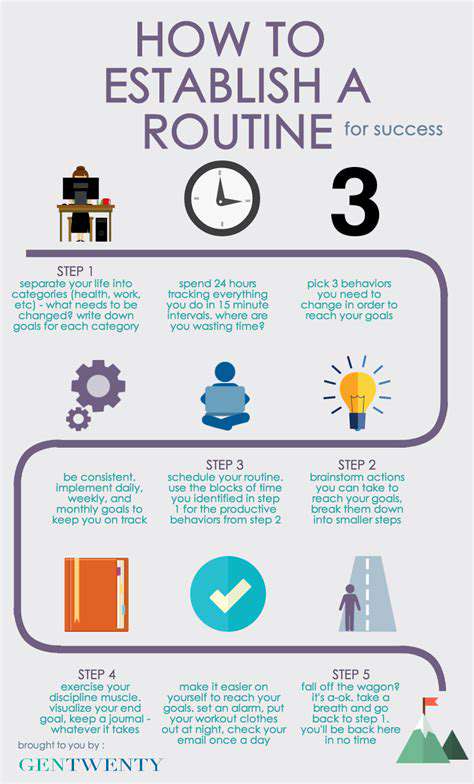
Understanding the Importance of a Routine
Creating a daily routine is vital for fostering resilience. It provides structure in our otherwise chaotic lives, helping to manage stress effectively. When you have a routine, you can anticipate what comes next, leading to a sense of control. This sense of predictability can greatly enhance your ability to cope with challenges.
A routine can also help prioritize your health and well-being. Regular sleep patterns, consistent meal times, and designated work periods contribute to a balanced lifestyle. When you align your daily activities to your goals, you create a clearer path to success. Establishing these patterns aids in asserting your stability in times of uncertainty.
Furthermore, routines can serve as a protective factor against anxiety. During stressful times, knowing what to expect can diminish feelings of unease and help you stay focused. Maintaining daily habits can keep anxiety at bay and bolster your mental health.
In conclusion, a well-structured routine aids not just in surviving daily pressures but in thriving through them. By managing your time effectively, you support both your physical and mental resilience in meaningful ways.
Steps to Create an Effective Routine
To build a routine that enhances resilience, start by identifying your key priorities. Consider what aspects of your life—be it work, personal growth, or relaxation—require regular attention. This clarity will guide you in structuring your day around these focal points.
Next, set specific, achievable goals for each part of your routine. Ensure that your goals are realistic and measurable, allowing you to celebrate small victories. This approach fosters a sense of accomplishment, reinforcing your resilience.
It is also important to be flexible with your routine. Life can be unpredictable, and adaptability is a key component of resilience. Allow room for adjustments in your schedule without feeling guilty; this helps you manage unforeseen challenges more effectively.
Finally, keep track of your progress. Use a journal or planner to note how well you’re sticking to your routine and the impact it has on your well-being. Reflecting on your accomplishments reinforces positive behavior and highlights areas for improvement.
Incorporating Mindfulness into Your Routine
Mindfulness can significantly enhance the effectiveness of your daily routine. By incorporating mindful practices, you can improve your focus and reduce stress levels. Whether it's through meditation, deep breathing exercises, or simple moments of reflection, mindfulness fosters a resilient mindset.
Start by dedicating a few minutes each day to mindfulness activities. This could be during your morning coffee or before sleeping, creating a peaceful space for contemplation. Experiences like these ground you, helping to prevent feelings of overwhelm.
Integrating mindfulness into your tasks can further deepen your resilience. For instance, when you’re engaged in routine chores, practice staying present in the moment. This allows you to engage deeply with your activities, fostering a sense of connection and reducing anxiety.
Ultimately, mindfulness paired with your daily routine cultivates a harmonious balance. This synergy between awareness and structure strengthens your ability to navigate life's ups and downs with grace.
Evaluating and Adjusting Your Routine
Regular evaluation of your routine is essential for long-term resilience. Self-assessment helps in identifying what works and what doesn’t. Take time weekly or monthly to reflect on your routines and their impact on your life.
Questions to consider include: Are you feeling overwhelmed? Is your routine helping you achieve your goals? Addressing these inquiries can ensure that your structure remains aligned with your evolving needs.
When adjustments are needed, be proactive in implementing them. This may involve experimenting with new time blocks or incorporating different activities that resonate with you. The goal is to keep your routine dynamic and responsive to your changing circumstances.
Ultimately, a regularly adjusted routine reflects growth and adaptability. As you navigate life's challenges, being open to change enhances your resilience and supports ongoing personal development.
Benefits of a Routine for Resilience
Establishing a routine offers numerous benefits, particularly in enhancing resilience. One major advantage is improved time management, as routines allow you to allocate time effectively to various life tasks. This management reduces overcommitment and fosters a sense of accomplishment.
Additionally, a structured routine can bolster emotional regulation. When faced with adversity, those who have a consistent routine often find it easier to maintain composure and respond thoughtfully rather than reactively. This creates a firm foundation for resilience.
A routine also fosters a sense of security. Engaging in familiar activities daily reinforces your understanding of what you can control. This security, in turn, empowers you to face challenges with a more balanced mindset.
Overall, the benefits of a routine extend beyond mere organization. They profoundly influence your emotional health, bolstering your resilience against daily stresses and unforeseen circumstances alike.
6. Embrace Change
Understanding the Nature of Change
Change is an inevitable part of life, and understanding its nature is crucial for building resilience. Accepting that change will occur not only helps us prepare for it but also reduces the anxiety often associated with uncertainty.
By recognizing that change can lead to growth and new opportunities, we can shift our mindset from one of fear to one of curiosity. Each change presents a chance to learn something new about ourselves and the world around us.
Reflecting on past changes in our lives can also provide perspective. Considering how we've adapted and grown previously can reinforce the idea that we are capable of handling new transitions.
Moreover, understanding that change often follows a pattern can also be reassuring. Most transitions involve a phase of adaptation, followed by eventual stabilization, which can encourage us to be patient with ourselves during difficult times.
In embracing change, it is also helpful to develop a set of strategies or tools that we can rely on. Whether it's seeking support from friends or engaging in mindfulness practices, having a plan can make navigating change less daunting.
Practicing Adaptability
Being adaptable is a key component of resilience, allowing us to respond effectively to change. Practicing flexibility in our thinking and actions enables us to pivot when circumstances shift unexpectedly.
One way to develop adaptability is to step out of our comfort zones regularly. By exposing ourselves to new experiences and challenges, we enhance our ability to cope with change when it arises.
Moreover, embracing a growth mindset can significantly enhance our adaptability. Believing that our abilities can be developed through hard work and dedication encourages us to view challenges as opportunities for growth instead of threats.
Additionally, cultivating a problem-solving attitude can help us address unexpected situations constructively. Instead of feeling overwhelmed, focusing on finding solutions empowers us to take charge and make effective decisions.
Lastly, connecting with others can provide additional support during times of change. Sharing experiences and learning from others who have navigated similar transitions can inspire us and offer new perspectives on adaptability.
7. Set Realistic Goals
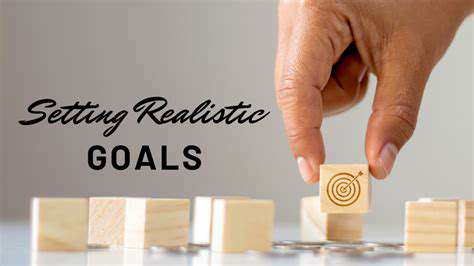
Understand the Importance of Goal Setting
Setting goals is a fundamental part of personal development and resilience building. By creating specific, measurable, achievable, relevant, and time-bound (SMART) goals, you can provide yourself with clear direction and focus. These goals act as a roadmap to help you navigate life's challenges. Without goals, it's easy to feel lost and overwhelmed, especially during difficult times.
Moreover, achieving small goals can lead to a sense of accomplishment, boosting your self-esteem and confidence. When you regularly meet these goals, you cultivate a positive mindset that supports resilience. Additionally, having well-defined goals can serve to keep you motivated and engaged in your endeavors.
It’s essential to remember that the process of setting and pursuing goals can be just as important as the goals themselves. Engaging with your goals helps to build your capacity to cope with setbacks and obstacles along the way. In this way, goal setting becomes a practice of resilience in action.
Furthermore, prioritizing mental and emotional well-being through goal setting is crucial. Goals can help you align your actions with your values, which in turn reinforces your sense of purpose. This alignment creates a solid foundation for coming back stronger after facing adversities.
In summary, understanding the importance of goal setting is the first step toward building resilience. Goals provide structure, create a sense of achievement, and reinforce your commitment to personal growth.
Create Actionable Steps
Once you’ve set your goals, it's time to break them down into actionable steps. This breakdown not only makes the goals more manageable but also clarifies the path ahead. Each step should be realistic and achievable, allowing you to make consistent progress without feeling overwhelmed.
Consider creating a checklist for each goal that outlines the specific actions you need to take. This visual representation can motivate you as you see tasks being crossed off over time. Celebrating small wins along the way adds an extra layer of accomplishment to your journey.
Additionally, don't hesitate to adjust your action plan as needed. Life is dynamic, and sometimes, what worked before may not work later. Being flexible with your approach shows resilience and adaptability in the face of changing circumstances.
It’s also beneficial to include a timeline for each step, which helps to maintain momentum. Setting deadlines fosters accountability and encourages you to stay focused on the tasks at hand. Remember that the journey of achieving goals is often as important as the destination.
In essence, creating actionable steps is a key part of effective goal setting and resilience building. It provides a structured approach that empowers you while making the pursuit of your goals feel tangible and achievable.
Align Goals with Personal Values
Aligning your goals with your personal values is crucial for long-term satisfaction and success. When your goals reflect what truly matters to you, your motivation will naturally increase. This alignment ensures that you remain committed even when challenges arise. Pursuing goals that resonate on a personal level can help you maintain focus and passion.
To align your goals with your values, take the time to reflect on what is most important to you in life. Consider journaling about your values and how they can manifest in your goal-setting process. This introspection can lead to a deeper understanding of yourself and your desires.
Moreover, regularly revisiting your goals to ensure they still align with your evolving values is essential. Life changes, and so can your priorities; being adaptable in your goal-setting process is a vital aspect of resilience. This practice keeps your pursuit meaningful and relevant throughout different life stages.
It's also helpful to discuss your goals and values with trusted friends or mentors. They can provide valuable insights and affirmations that can reinforce your commitment and resilience. Their encouragement may also help you to remain focused on your values during challenging times.
In conclusion, aligning your goals with your personal values is a powerful strategy for building resilience. It creates a sense of purpose and directional clarity that supports you on your journey through life.
Monitor Progress and Adjust When Necessary
Monitoring your progress is an essential step in effective goal setting. Regularly assessing where you are in relation to your goals allows you to track achievements and challenges. This self-reflection can help you understand what's working and what needs to change in your approach.
A great way to monitor progress is by keeping a journal or log. Writing down your experiences, feelings, and insights along the way can provide clarity and encouragement. This documentation serves as a powerful reminder of your journey and successes.
As you evaluate your progress, be open to making adjustments. If you find that certain strategies aren’t yielding the desired results, don’t be afraid to pivot. Flexibility is a key component of resilience; it encourages growth and learning, rather than frustration.
Additionally, regularly reviewing your goals can help you stay aligned with your values and adapt to new circumstances. Life is ever-changing, and being responsive to these changes ultimately enhances your resilience. Celebrate your successes and learn from your setbacks as part of the continuous journey.
Ultimately, monitoring your progress and adapting as necessary is crucial for maintaining your resilience. It allows you to stay on track while fostering a growth-oriented mindset that thrives on challenges and experiences.
Cultivate a Supportive Environment
Your environment plays a significant role in your ability to achieve goals and build resilience. Surrounding yourself with supportive people can provide the encouragement and motivation necessary during tough times. Having a strong support system helps to reinforce your commitment to your goals.
Establishing connections with like-minded individuals can also inspire you to stay focused and engaged. Consider joining groups or communities that align with your goals and values. Engaging in discussions and activities within these networks can enhance your sense of belonging and support.
Moreover, ensure that your physical environment is conducive to goal achievement. Organizing your workspace, limiting distractions, and creating a space that reflects your ambitions can boost productivity and clarity. A well-structured environment nurtures your ability to pursue your goals effectively.
It’s also essential to communicate openly with those around you about your goals and aspirations. Sharing your journey with trusted friends or family can help reinforce your commitment and provide additional accountability. It fosters an environment of shared growth and understanding.
In conclusion, cultivating a supportive environment is key to building resilience as you pursue your goals. This support, both social and physical, creates a foundation from which to thrive during the ups and downs of life.
8. Stay Optimistic
Cultivating a Positive Mindset
Optimism is a powerful tool for building resilience, as it enables you to view challenges as opportunities for growth and learning. When you approach difficulties with a positive attitude, you're more likely to find creative solutions and bounce back from setbacks.
One way to cultivate optimism is to focus on the good things in your life, rather than dwelling on the negative. Practice gratitude by keeping a journal or sharing three things you're thankful for each day with a friend or family member.
Reframing Negative Thoughts
When faced with adversity, our minds can easily fall into negative thought patterns. However, reframing these thoughts can help shift your perspective and build resilience. Ask yourself questions like "What can I learn from this experience?" or "How can I grow as a result of this challenge?"
For example, instead of thinking "I'll never be able to handle this," try reframing it as "I'll learn and grow from this experience, and I'll be stronger because of it."
Practicing Self-Compassion
It's essential to treat yourself with kindness and compassion when faced with challenges. Be gentle with yourself, and acknowledge that it's okay to make mistakes. Remember that everyone experiences setbacks, and it's how you respond that matters.
Practice self-compassion by speaking to yourself in a kind and supportive way. For example, if you make a mistake, say to yourself "I did my best, and that's something to be proud of." Treat yourself with the same kindness and care that you would offer to a friend in a similar situation.
Staying Present
9. Learn from Failure
9. Learn from Failure
Failure is an inevitable part of life, and it's how we respond to it that matters. Rather than getting bogged down by setbacks, learn to view them as opportunities for growth and learning. Ask yourself what you could have done differently and what you can do differently in the future.
When we refuse to learn from our mistakes, we risk repeating them over and over again. On the other hand, when we learn from our failures, we become wiser, more resilient, and more capable of handling future challenges.
It's also essential to develop a growth mindset, which involves believing that your abilities and intelligence can be developed through hard work and dedication. This mindset helps you approach challenges with confidence and a willingness to learn from your mistakes.
Remember, resilience is not about being perfect; it's about being able to bounce back from adversity and keep moving forward. By learning from your failures and viewing them as opportunities for growth, you'll become more resilient and better equipped to handle the ups and downs of life.
10. Practice Self-Care
Self-care is not a luxury; it's a necessity for building resilience. When we take care of our physical, emotional, and mental well-being, we're better equipped to handle stress and adversity.
Make time for activities that nourish your mind, body, and spirit, such as exercise, meditation, or spending time in nature. Prioritize getting enough sleep, eating a healthy diet, and engaging in activities that bring you joy and fulfillment.
It's also essential to set healthy boundaries and prioritize your own needs. Learn to say no to things that drain your energy and say yes to things that nourish your soul.
By prioritizing self-care, you'll be better able to manage stress, build resilience, and maintain a positive outlook on life.
10. Seek Professional Support
Understanding the Importance of Professional Support
Seeking professional support is an essential strategy for building resilience. It provides an opportunity for individuals to discuss their challenges with trained professionals who can offer valuable insights. This guidance can help individuals navigate through difficult times with a clearer perspective.
Professional support can come in various forms, including therapy, counseling, and support groups. Each of these options offers different kinds of assistance, tailored to the unique needs of the individual. Understanding which type is most beneficial is the first step toward effective support.
Moreover, engaging with a professional can aid in identifying patterns of behavior that may hinder resilience. By addressing these patterns, individuals can develop healthier coping mechanisms and strategies to face life's challenges with greater confidence.
Identifying When to Seek Help
Recognizing when to seek professional help is crucial for personal growth and resilience. Many people may hesitate to reach out, feeling that they should handle their problems alone. However, acknowledging that it's okay not to be okay is a vital step. Signs that indicate the need for professional support may include prolonged feelings of distress, ongoing anxiety, or struggles in daily functioning.
Feeling overwhelmed or unable to cope with stress is also a strong signal. If an individual finds it increasingly difficult to manage their emotions or maintain relationships, it might be time to speak with a mental health professional. It's important to listen to these signals and prioritize mental well-being.
Additionally, seeking help proactively rather than reactively is encouraged. This means reaching out for support even before reaching a breaking point. Preventative measures can result in healthier coping strategies and a stronger foundation for resilience.
Finding the Right Professional Support
When looking for the right professional support, it's essential to consider individual preferences and needs. This may include evaluating factors such as the therapist's specialization, approach to treatment, and personal rapport. Different professionals may resonate better with certain individuals, so taking time to find the right match is crucial.
Researching credentials and reviewing testimonials can also assist in making an informed decision. Referrals from friends, family, or primary care physicians can provide insight into suitable professionals. Additionally, many resources, such as online directories and mental health organizations, can help individuals find qualified practitioners in their area.
It’s also important to remember that therapy is a personal journey; it may take time to feel comfortable with a chosen professional. It’s perfectly acceptable to switch therapists if the first choice doesn’t feel like a good fit. Ensuring that individuals feel safe and supported is a key element in establishing an effective therapeutic relationship.
